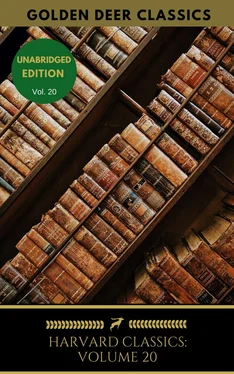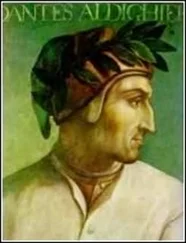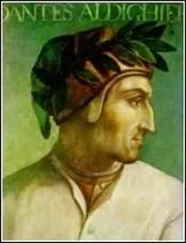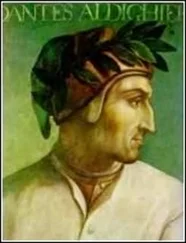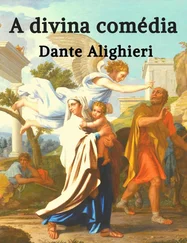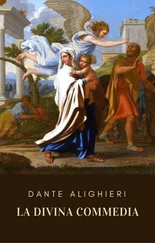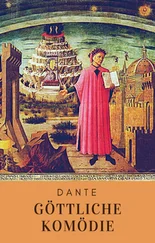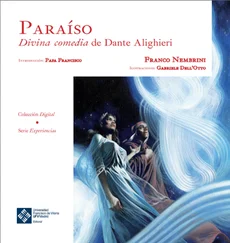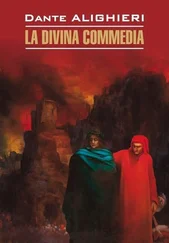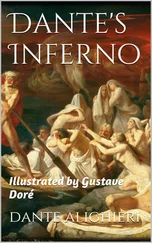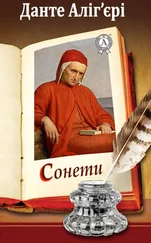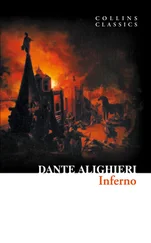Array Dante Alighieri - Harvard Classics Volume 20
Здесь есть возможность читать онлайн «Array Dante Alighieri - Harvard Classics Volume 20» — ознакомительный отрывок электронной книги совершенно бесплатно, а после прочтения отрывка купить полную версию. В некоторых случаях можно слушать аудио, скачать через торрент в формате fb2 и присутствует краткое содержание. Жанр: unrecognised, на английском языке. Описание произведения, (предисловие) а так же отзывы посетителей доступны на портале библиотеки ЛибКат.
- Название:Harvard Classics Volume 20
- Автор:
- Жанр:
- Год:неизвестен
- ISBN:нет данных
- Рейтинг книги:5 / 5. Голосов: 1
-
Избранное:Добавить в избранное
- Отзывы:
-
Ваша оценка:
- 100
- 1
- 2
- 3
- 4
- 5
Harvard Classics Volume 20: краткое содержание, описание и аннотация
Предлагаем к чтению аннотацию, описание, краткое содержание или предисловие (зависит от того, что написал сам автор книги «Harvard Classics Volume 20»). Если вы не нашли необходимую информацию о книге — напишите в комментариях, мы постараемся отыскать её.
1. The Divine Comedy, by Dante Alighieri
Also available:
The Complete Harvard Classics Collection (51 Volumes + The Harvard Classic Shelf Of Fiction)
50 Masterpieces You Have To Read Before You Die (Golden Deer Classics)
Harvard Classics Volume 20 — читать онлайн ознакомительный отрывок
Ниже представлен текст книги, разбитый по страницам. Система сохранения места последней прочитанной страницы, позволяет с удобством читать онлайн бесплатно книгу «Harvard Classics Volume 20», без необходимости каждый раз заново искать на чём Вы остановились. Поставьте закладку, и сможете в любой момент перейти на страницу, на которой закончили чтение.
Интервал:
Закладка:
Wrote O or I, he kindled, burn’d, and changed
To ashes all, pour’d out upon the earth.
When there dissolved he lay, the dust again
Uproll’d spontaneous, and the self-same form
Instant resumed. So mighty sages tell,
The Arabian Phoenix, when five hundred years
Have well-nigh circled, dies, and springs forthwith
Renascent: blade nor herb throughout his life
He tastes, but tears of frankincense alone
And odorous amomum: swaths of nard
And myrrh his funeral shroud. As one that falls,
He knows not how, by force demoniac dragg’d
To earth, or through obstruction fettering up
In chains invisible the powers of man,
Who, risen from his trance, gazeth around,
Bewilder’d with the monstrous agony
He hath endured, and wildly staring sighs;
So stood aghast the sinner when he rose.
Oh! how severe God’s judgment, that deals out
Such blows in stormy vengeance. Who he was,
My teacher next inquired; and thus in few
He answer’d: “Vanni Fucci [161]am I call’d,
Not long since rained down from Tuscany
To this dire gullet. Me the bestial life
And not the human pleased, mule that I was,
Who in Pistoia found my worthy den.”
I then to Virgil: “Bid him stir not hence;
And ask what crime did thrust him thither: once
A man I knew him, choleric and bloody.”
The sinner heard and feign’d not, but toward me
His mind directing and his face, wherein
Was dismal shame depictured, thus he spake:
“It grieves me more to have been caught by thee
In this sad plight, which thou beholdest, than
When I was taken from the other life.
I have no power permitted to deny
What thou inquirest. I am doom’d thus low
To dwell, for that the sacristy by me
Was rifled of its goodly ornaments,
And with the guilt another falsely charged.
But that thou mayst not joy to see me thus,
So as thou e’er shalt ’scape this darksome realm,
Open thine ears and hear what I forebode.
Reft of the Neri first Pistoia [162]pines;
Then Florence [163]changeth citizens and laws;
From Valdimagra, [164]drawn by wrathful Mars,
A vapor rises, wrapt in turbid mists,
And sharp and eager driveth on the storm
With Arrowy hurtling o’er Piceno’s field,
Whence suddenly the cloud shall burst, and strike
Each helpless Bianco prostrate to the ground.
This have I told, that grief may rend thy heart.”
Canto XXV
Argument.—The sacrilegious Fucci vents his fury in blasphemy, is seized by serpents, and flying is pursued by Cacus in the form of a Centaur, who is described with a swarm of serpents on his haunch, and a dragon on his shoulders breathing forth fire. Our Poet then meets with the spirits of three of his countrymen, two of whom undergo a marvelous transformation in his presence.
When he had spoke, the sinner raised his hands [165]
Pointed in mockery and cried” “Take them, God!
I level them at thee.” From that day forth
The serpents were my friends; for round his neck
One of them rolling twisted, as it said,
“Be silent, tongue!” Another, to his arms
Upgliding, tied them, riveting itself
So close, it took from them the power to move.
Pistoia! ah, Pistoia! why dost doubt
To turn thee into ashes, cumbering earth
No longer, since in evil act so far
Thou hast outdone thy seed? I did not mark,
Through all the gloomy circles of the abyss,
Spirit, that swell’d so proudly ’gainst his God;
Not him, [166]who headlong fell from Thebes. He fled,
Nor utter’d more; and after him there came
A Centaur full of fury, shouting, “Where,
Where is the caitiff?” On Maremma’s marsh [167]
Swarm not the serpent tribe, as on his haunch
They swarm’d, to where the human face begins.
Behind his head, upon the shoulders, lay
With open wings a dragon, breathing fire
On whomsoe’er he met. To me my guide:
“Cacus is this, who underneath the rock
Of Aventine spread oft a lake of blood.
He, from his brethren parted, here must tread
A different journey, for his fraudful theft
Of the great herd that near him stall’d; whence found
His felon deeds their end, beneath the mace
Of stout Alcides, that perchance laid on
A hundred blows, and not the tenth was felt.”
While yet he spake, the Centaur sped away:
And under us three spirits came, of whom
Nor I nor he was ware, till they exclaim’d,
“Say who are ye!” We then brake off discourse,
Intent on these alone. I knew them not:
But, as it chanceth oft, befell that one
Had need to name another. “Where,” said he,
“Doth Cianfa [168]lurk?” I, for a sign my guide
Should stand attentive, placed against my lips
The finger lifted. If, O reader! now
Thou be not apt to credit what I tell,
No marvel; for myself do scarce allow
The witness of mine eyes. But as I look’d
Toward them, lo! a serpent with six feet
Springs forth on one, and fastens full upon him:
His midmost grasp’d the belly, a forefoot
Seized on each arm (while deep in either cheek
He flesh’d his fangs); the hinder on the thighs
Were spread, ’twixt which the tail inserted curl’d
Upon the reins behind. Ivy ne’er clasp’d
A dodder’d oak, as round the other’s limbs
The hideous monster intertwined his own.
Then, as they both had been of burning wax,
Each melted into other, mingling hues,
That which was either now was seen no more.
Thus up the shrinking paper, ere it burns,
A brown tint glides, not turning yet to black,
And the clean white expires. The other two
Look’d on exclaiming, “Ah! how dost thou change,
Agnello! [169]See! Thou art nor double now,
Nor only one.” The two heads now became
One, and two figures blended in one form
Appear’d, where both were lost. Of the four lengths
Two arms were made: the belly and the chest,
The thighs and legs, into such members changed
As never eye hath seen. Of former shape
All trace was vanish’d. Two, yet neither, seem’d
That image miscreate, and so pass’d on
With tardy steps. As underneath the scourge
Of the fierce dog-star that lays bare the fields,
Shifting from brake to brake the lizard seems
A flash of lightning, if he thwart the road;
So toward the entrails of the other two
Approaching seem’d an adder all on fire,
As the dark pepper-grain livid and swart.
In that part, whence our life is nourish’d first,
Once he transpierced; then down before him fell
Stretch’d out. The pierced spirit look’d on him,
But spake not; yea, stood motionless and yawn’d,
As if by sleep or feverous fit assail’d.
He eyed the serpent, and the serpent him.
One from the wound, the other from the mouth
Breathed a thick smoke, whose vapory columns join’d.
Lucan in mute attention now may hear,
Nor thy disastrous fate, Sabellus, tell,
Nor thine, Nasidius. Ovid now be mute.
What if in warbling fiction he record
Cadmus and Arethusa, to a snake
Him changed, and her into a fountain clear,
I envy not; for never face to face
Two natures thus transmuted did he sing,
Wherein both shapes were ready to assume
The other’s substance. They in mutual guise
So answer’d that the serpent split his train
Divided to a fork, and the pierced spirit
Drew close his steps together, legs and thighs
Compacted, that no sign of juncture soon
Was visible: the tail, disparted, took
Читать дальшеИнтервал:
Закладка:
Похожие книги на «Harvard Classics Volume 20»
Представляем Вашему вниманию похожие книги на «Harvard Classics Volume 20» списком для выбора. Мы отобрали схожую по названию и смыслу литературу в надежде предоставить читателям больше вариантов отыскать новые, интересные, ещё непрочитанные произведения.
Обсуждение, отзывы о книге «Harvard Classics Volume 20» и просто собственные мнения читателей. Оставьте ваши комментарии, напишите, что Вы думаете о произведении, его смысле или главных героях. Укажите что конкретно понравилось, а что нет, и почему Вы так считаете.
